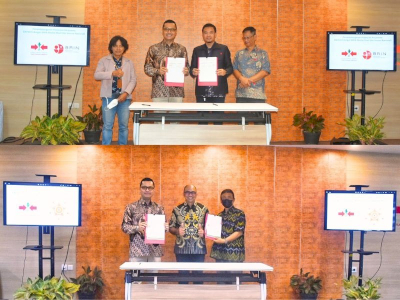
Amidst the global geopolitical and economic crisis, the negative impacts have been felt across numerous industries. The rising costs of production and distribution have compelled many industries to adapt to these difficult circumstances by reducing their production units. One of the affected sectors is the chemical fertilizer manufacturing companies that distribute their products worldwide, as they have had to reduce their production. This has resulted in an increase in the prices of chemical fertilizers due to the scarcity of stock. In view of the deepening crisis that shows no signs of abating, it is imperative to seek alternative solutions for chemical fertilizer users to ensure that agricultural production remains uninterrupted.
Promoting Sustainable Agriculture involves not only focusing on land utilization and nutrient management but also preserving soil quality to retain nutrients for plants. In the implementation of sustainable agriculture, the utilization of land resources, water, and plant materials for production endeavors must be sustainable, resulting in economically viable and profitable agricultural products. This event invites Dr. Ahmad Fathoni, M.Eng., Head of the Applied Microbiology Research Center at BRIN, and his team to strengthen the collaboration between EWINDO and BRIN in the development of sustainable agriculture, particularly in the development of Microbial Biological Agents. EWINDO is partnering with BRIN to establish the first organic fertilizer reactor facility, which was launched in Banyuwangi with the participation of key local farmers since November 23, 2022. In the process of producing organic fertilizer, BRIN contributes one of its innovative products, namely the POH agent solution. However, it should be noted that POH is not a substitute for primary fertilizers but rather assists farmers in optimizing the use of chemical fertilizers. After being used in several locations and treatments, POH has proven to enhance the quality of growth and yields.
In addition to continuing collaboration with BRIN, EWINDO also invites UGM regarding the sustainability of the Biological Genetic Bank program, which has been working with PIAT UGM since 2018. On this occasion, UGM is represented by Ignatius Susatyo Wijoyo, M.M., Vice Rector for Research, Development, and Cooperation at UGM. With a spirit of innovation and sustainable agriculture, it is hoped that the collaboration with UGM regarding the Biological Genetic Bank can become an official facility to support research and innovation in preserving germplasm in Indonesia.
Furthermore, EWINDO, together with BRIN, aims to further develop Biological Agents to restore soil fertility and reduce the excessive use of chemicals in horticultural cultivation. This collaboration between the two stakeholders is also expected to support EWINDO's commitment to continually improve Indonesian agriculture, especially for the welfare of Indonesian farmers. #cappanahmerah